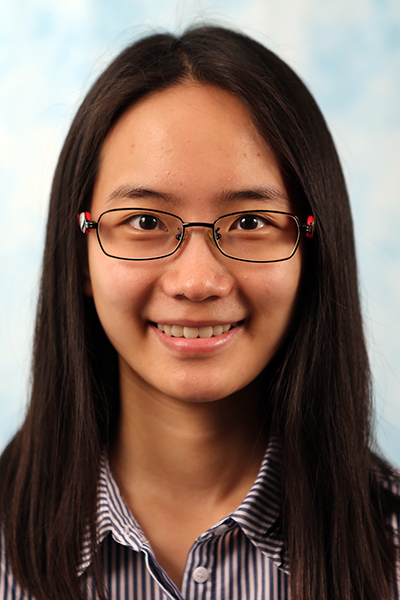PhD Speaking Qualifier
Carnegie Mellon University
Planning and Execution using Inaccurate Models with Provable Guarantees
Zoom Link Abstract: Models used in modern planning problems to simulate outcomes of real world action executions are becoming increasingly complex, ranging from simulators that do physics-based reasoning to precomputed analytical motion primitives. However, robots operating in the real world often face situations not modeled by these models before execution. This imperfect modeling can lead [...]
Carnegie Mellon University
The Effect of Locomotion Configuration on Discrete Obstacle Traversal for a Small Tracked Vehicle
Zoom Link Abstract: As mobile robots are being designed for increasingly rugged and unknown terrain, mechanical reconfigurability presents one possibility for improving vehicle efficiency and mobility. To validate this idea, we created an 18.5-kg modular tracked vehicle with adjustable track tension, track width, track length, and sprocket diameter. In this talk, I will explain the [...]
Carnegie Mellon University
Task-Driven Modular Networks for Zero-Shot Compositional Learning
Zoom Link Abstract: One of the hallmarks of human intelligence is the ability to compose learned knowledge into novel concepts which can be recognized without a single training example. In contrast, current state-of-the-art methods require hundreds of training examples for each possible category to build reliable and accurate classifiers. To alleviate this striking difference in [...]
Image to LiDAR Map Registration using Late Feature Projection
Zoom Link Abstract: Accurate localization is essential for autonomous operation in many problem domains. This is most often performed by comparing LiDAR scans collected in real-time to a HD point cloud based map. While this enables centimeter-level accuracy, it depends on an expensive LiDAR sensor at run time. Recently, efforts have been underway to reduce [...]
Carnegie Mellon University
A Theory of Fermat Paths for Non-line-of-sight Shape Reconstruction
Zoom Link Abstract: Traditionally, computer vision systems and algorithms, such as stereo vision, and shape from shading, have been developed to mimic human vision. As a consequence, a lot of these systems operate under constraints that we take for granted in human vision. An example of such a constraint is that the scene of interest [...]
Learning Contextual Actions for Heuristic Search-Based Motion Planning
Zoom Link Abstract: Heuristic search-based motion planning can be computationally costly in large state and action spaces. In this work we explore the use of generative models to learn contextual actions for successor generation in heuristic search. We focus on cases where the robot operates in similar environments, i.e. environments drawn from some underlying distribution. [...]
Carnegie Mellon University
Interactive Weak Supervision – Learning Useful Heuristics for Data Labeling
Zoom Link Abstract: Obtaining large annotated datasets is critical for training successful machine learning models and it is frequently a bottleneck in practice. Weak supervision offers a promising alternative for producing labeled datasets without ground truth annotations by generating probabilistic labels using multiple noisy heuristics. This process can scale to large amounts of data and [...]
Carnegie Mellon University
Learning Active Task-Oriented Exploration Policies for Bridging the Sim-to-Real Gap
Zoom Link Abstract: Training robotic policies in simulation suffers from the sim-to-real gap, as simulated dynamics can be different from real-world dynamics. Past works tackled this problem through domain randomization and online system-identification. The former is sensitive to the manually-specified training distribution of dynamics parameters and can result in behaviors that are overly conservative. The [...]
Interferometric light transmission probing with coded mutual intensity
Zoom Link Abstract: We introduce a new interferometric imaging methodology that we term interferometry with coded mutual intensity, which allows selectively imaging photon paths based on attributes such as their length and endpoints. At the core of our methodology is a new technical result that shows that manipulating the spatial coherence properties of the light [...]
Sparse Spatial Hashing for Dense 3D Reconstruction
Abstract: Real-world 3D data is locally dense but globally sparse. Therefore, efficient sparse data structures are an essential component of dense 3D perception for computer vision and robotics. We manifest the power of spatial hashing by two typical tasks: dense scene reconstruction and global registration. In the first task, we accelerate volumetric integration and surface [...]









